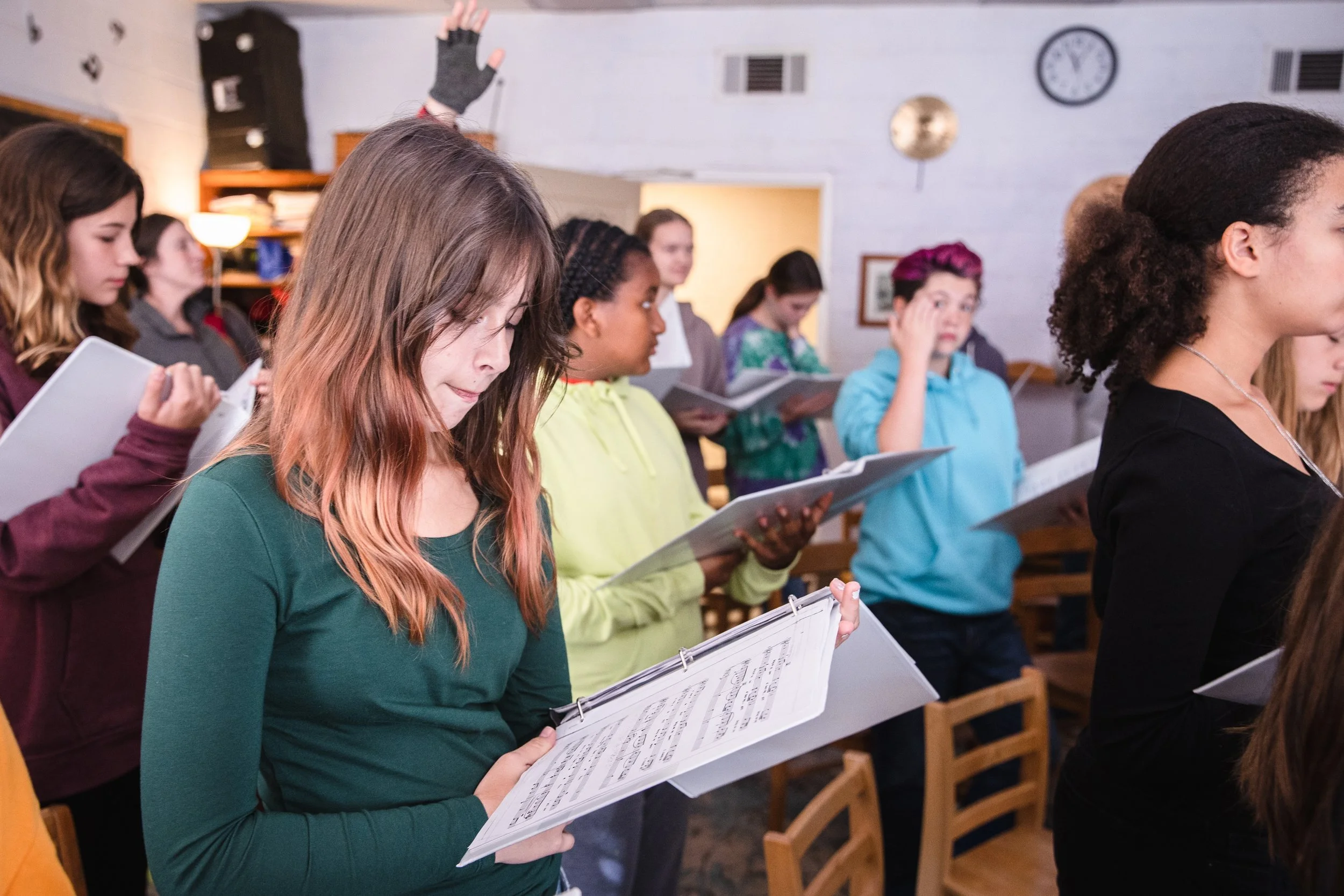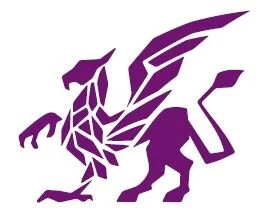“WSA is our family! Our children have received so much support over the years from their many teachers, and we are so thankful. We wish every child could receive a Waldorf education.”
Middle School
Grade 6
Venturing Forth
Sixth grade is the gateway to pre-adolescence. The curriculum offers firm academic grounding in math, composition, and science, along with memorable depictions of cultural cause and effect: Arthurian legend and the rise and fall of the Roman Empire, medieval society and the Crusades. Students begin to structure and participate in scientific experiments on light, heat, magnetism and electricity while the study of mathematics incorporates business math and the principles of economics.
middle school
Grade 7
Great Discoveries
Through the exploration of an unknown world, the seventh grade curriculum challenges the thought processes of young adolescents, leading them to discovery, understanding and discernment. Students trace the routes of the world's great explorers, hone written language through creative writing, and recreate the painting of a Renaissance master. New discoveries continue with the introduction of geometry and pre-algebra, and the physiology of the human body - coursework that lays the academic foundation for further studies in Grade Eight and high school.
middle school
Grade 8
Revolutionary Spirit
Grade Eight marks a significant milestone for the students and teacher, many of whom have journeyed together since Grade One. Grade Eight represents both the culmination of the middle school experience, which by now has grown familiar and comfortable, and the transition to high school with its exciting unknowns.
Amid studies of the great revolutions and the dawn of new societies, students weigh tradition against progress. Reading Shakespeare, writing lab reports, and examining current events, the class moves toward an evaluation of what is true. At the same time, a gradual but significant shift is taking place: the didactic presentation of a subject by the teacher is giving way to the mutual consideration of a subject by teacher and class together. A sense of community develops, in which speaking becomes more thoughtful, listening more attentive. The result is a greater sense of self. More importantly, students leave with compelling questions that will continue to fuel their love of learning in the years ahead.
Middle School Math at Waldorf
Math in the lower grades is taught by the Class Teacher. Middle School grades are taught by experienced math specialists Sharon Annan and Deedi Barker.
In Grade Six -
Students are shoring up arithmetic skills before venturing into new topics such as the order of operations, percent, ratio, descriptive statistics, measurement and geometry. Work is balanced between solidifying foundational skills and exploring new concepts. The theme of the year is Business Math, and the students have a main lesson focused on topics in percent, percent applications, and budgeting. Students also work in formal geometric drawing with a compass and straight edge to experience and build skills in the precision and elegance of formal geometry.
Major topics of Grade Six study:
- Business math: percentage, history of money, percent calculations and percent applications including interest, taking the percent of a number, percent change, and finding a missing percent, interest, budgeting, negative balances
- Conversions between decimals, fractions and percents
- Roman numerals
- Geometric drawing with compass
- Geometry topics – area and perimeter, introduction to geometric angles and circles
- Statistics: mean, median, mode, range, pie charts, quartiles and IQR
- Pre-Algebra: order of operations, ratio, rates and unit rates, introductory proportion, algebraic properties, exponents and roots, grouping symbols
- Prime numbers and prime factorization
- Measurement: Metric system, US system, perimeter and area of some polygons
- Problem solving
- Review of all fraction operations with particular emphasis on using mixed numbers
- Review of all decimal operations
- Expanded problem solving techniques
- Mental math calculation and estimation
- Biographies of mathematicians
In Grade Seven -
The students transition from the world of arithmetic to mathematics. The skills that students have been learning and practicing in grades one through six get put to work in the subjects of ratios, percentages, word problems, and algebra. Geometry takes its first analytical bent as students calculate angle measurements based on properties of figures and are introduced to the Pythagorean theorem. It is a step into the world of abstract and logical thought – a gesture that grows in middle school mathematics and reaches its zenith in the high school years.
Major Topics of Grade Seven Study:
- Sequences
- The Real Number System:
- Operations involving positive and negative numbers
- Introduction to irrational numbers
- Ratio, rates, and proportion
- Introduction to Algebra: simplifying expressions and solving equations
- Graphing points
- Exponents and roots
- Area and perimeter of polygons
- Area and circumference of circles
- Geometric angles
- Pythagorean Theorem
- Properties of angles of parallel lines cut by a transversal
- Descriptive Statistics: Mean, median, mode, quartiles, interquartile range, stem leaf plots, box-whisker plots, bar graphs and histograms, basic probability
- Estimation and problem solving
In Grade Eight -
In Grade 8, the beauty of mathematics continues to be an important theme throughout the year. Students should complete eighth grade with a firm grasp of arithmetic operations with all rational numbers, and be competent working with rounding, estimation, and formulas. Boarder problem solving continues to be important—especially problems that test thinking against multiple-step problems and utilize analytical skills and problem-solving strategies.
Topics in basic descriptive statistics and introductory Algebra I are covered throughout the year. Every effort is made to present Algebra concepts in a clear and concrete way, and to provide differentiation in the lessons to meet differing developmental maturity levels in the students.
Geometry continues with the construction of more complex geometric drawings, including polygons, projections of 3-dimensional polyhedral, and nets to construct Platonic and Archimedean solids. Computation of areas of 2-dimensional figures and volume of 3-dimensional solids is explored. A major theme throughout the students’ mathematical experience is a balance of emphasis on pure number and on geometric forms. This theme culminates in a Main Lesson Block on the five Platonic solids, in which the visualization and transformation of forms is blended with the derivation of their properties.
In the Technology Main Lesson Block, students explore introductory Linux scripting as well as Python programming. An emphasis is placed on organization of files and programs in proper directories, as well as commenting in programs. Students expand their previous work on basic circuitry and electronics with signal and switch electronics using a Raspberry Pi microcomputer. They also simulate a brute-force crypt attack on a coded message and dissemble parts of a PC and then reassemble it.
Major Topics of Grade Eight:
- Algebra I topics include order of operations, operations with radicals, operations with polynomials, exponents, simplifying and solving linear equations, linear inequalities, linear systems, solving quadratic equations by factoring
- Graphing points, linear equations and systems, linear inequalities
- Descriptive Statistics: Mean, median, mode, quartiles, interquartile range, mean absolute deviation, statistical plots, probability
- Number bases, and set concepts
- Scientific notation
- Computers, basic coding in Linux and Python
- Geometry: polygons, angles, area, surface area, and volume, Pythagorean Theorem, properties of polyhedra
- Problem solving techniques
- Number bases, and set concepts
- Computers, basic coding in Linux and Python















